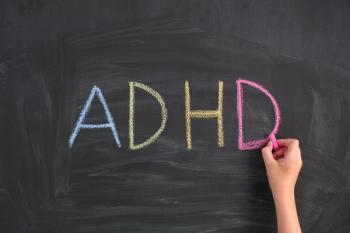
How obesity stigma targets more than weight
Children who struggle with obesity not only have to deal with a host of physical problems, but social problems also take a huge toll, according to a new study.
The problems overweight children face as a result of their size aren’t limited to the host of physical comorbidities linked to obesity. A new study has found that the psychological impact of obesity in childhood can also have severe consequences on their social health.
In a
Kayla de la Haye, PhD, assistant professor of preventive medicine at the University of Southern California’s Keck School of Medicine in Los Angeles and lead author of the report says the results highlight the fact that the challenges overweight children face are not limited to their physical health.
“They are likely to experience a lot of social stress because they are being ostracized and rejected by many of their peers. This rejection means that overweight kids are likely to have fewer friends, that they are more likely to be disliked by their peers, and that they are likely to become friends with other overweight kids who also experience peer rejection,” de la Haye says. “This negative social environment is important to address because it can have a negative impact on their mental health, and because it is a barrier to overweight kids adopting healthy habits. In fact, overweight kids who experience peer rejection and social isolation are likely to exercise less, have greater food intake, and have fewer positive role models for both healthy habits and a healthy weight.”
In one of the classrooms studied, 2 of the 3 overweight girls were involved in multiple antipathy relationships, functioning both as the ones offering and receiving hostility. They had few friendships with children who were not overweight. The third overweight girl in the classroom reached out to initiate many friendships, but her efforts were not reciprocated.
“This study shows that overweight children are not only passively marginalized by their
peers by receiving fewer friendship nominations, but they are also overtly rejected by being disliked by more of their peers,” the study reveals.
“Overweight children were also found to nominate as many friends as their non-overweight peers; a finding which is in line with longitudinal research showing that marginalization is predominantly driven by overweight children being excluded by peers who do not reciprocate their extensions of friendship, rather than a result of their own withdrawal,” researchers note. “Additionally, this study revealed that overweight children were more likely than their non-overweight peers to dislike their classmates.”
These social factors can have an exacerbating effect on the overweight child’s existing problems, with psychosocial maladjustment manifesting through unhealthy behaviors such as increased food intake and decreased participation in sports and other physical activities. The study also did not find evidence to support assumptions from prior research that overweight children make friends with other overweight children.
In the process of conducting research for this study, as well as in past projects, de la Haye says she is surprised at how consistent the stigma against overweight individuals is across time and locations.
“The extent to which just being overweight as a kid, over and above other attributes you have, is an important social marker that determines how much you are liked or disliked by your peers,” she says. “No matter how common or uncommon it is to be overweight, being overweight is consistently a characteristic that is stigmatized and treated as a reason to dislike someone.”
De la Haye says she hopes the paper will help raise awareness about the wide-reaching impact obesity can have on a child’s social health.
“I'm also hopeful that these findings will challenge the all-too-common view that stigmatizing obesity is somehow okay, and that it encourages or motivates overweight kids to lose weight,” she says. “Stigmatizing obesity is not helping kids lose weight, but it is having a negative impact on overweight children's social and physical health, and we need to address it.”
De la Haye says parents should establish healthy eating and activity habits for their children but they also need to push for school and community support in helping families and kids achieve a healthy weight, and in advocating against stigmatization against obesity. Pediatricians can help by recognizing the existence of these social stressors and offering support. It’s important in offering this support to avoid “victim blaming,” where the focus is on teaching victims to cope with discrimination, teasing, or bullying, she says.
“Instead, all parents can play an important role in helping children understand that being overweight is not a characteristic we should judge as ‘bad,’” she says. “Pediatricians play a critical role in changing this conversation, and in helping parents understand that the rapidly increasing rates of childhood obesity have been caused by a very complex number of conditions that have made it easy to overeat and do too little exercise.”
Newsletter
Access practical, evidence-based guidance to support better care for our youngest patients. Join our email list for the latest clinical updates.






